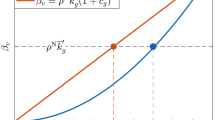Abstract
Social relationships are often described as social exchanges, understood as service exchanges between pairs of individuals with the evaluation of those exchanges by the individuals themselves. Social exchanges have been frequently used for defining interactions in MAS. An important problem that arises in the context of social simulation and other MAS applications is the self-regulation of the social exchange processes, so that the agents can achieve/maintain the equilibrium of the exchanges by themselves, guaranteing the continuation of the interactions in time. Recently, this problem was tackled by defining the spatial and evolutionary Game of Self-Regulation of Social Exchange Processes (GSREP), implemented in NetLogo, where the agents evolve their exchange strategies by themselves over time, performing more equilibrated and fair interactions. The objective of this paper is to analyse the problem of the self-regulation of social exchange processes in the context of a BDI-based MAS, adapting the GSREP game to Jason agents and introducing a cultural aspect, where the society culture, aggregating the agents’ reputation as group beliefs, influences directly the evolution of the agents’ exchange strategies, increasing the number of successful interactions and improving the agents’ outcomes in interactions.
Access this chapter
Tax calculation will be finalised at checkout
Purchases are for personal use only
Preview
Unable to display preview. Download preview PDF.
Similar content being viewed by others
References
Blau, P.: Exchange & Power in Social Life. Trans. Publish., New Brunswick (2005)
Boissier, O., Bordini, R.H., Hübner, J.F., Ricci, A., Santi, A.: Multi-agent oriented programming with JaCaMo. Science of Computer Programming 78(6), 747–761 (2013)
Bordini, R.H., Hübner, J.F., Wooldrige, M.: Programming Multi-agent Systems in AgentSpeak Using Jason. Wiley Series in Agent Technology. John Wiley & Sons, Chichester (2007)
Bratman, M.E.: Intention, plans, and practical reason. Cambridge University Press (1999)
Castelfranchi, C., Falcone, R.: Principles of trust for MAS: cognitive anatomy, social importance and quantification. In: Intl. Conf. of Multi-agent Systems (ICMAS), pp. 72–79 (1998)
Castelfranchi, C., Falcone, R., Firozabadi, B., Tan, Y.: Special issue on trust, deception and fraud in agent societies. Applied Artificial Intelligence Journal 1, 763–768 (2000)
Criado, N., Argente, E., Botti, V.: Open issues for normative multi-agent systems. AI Communications 24(3), 233–264 (2011)
Dignum, V., Dignum, F. (eds.): Perspectives on Culture and Agent-based Simulations. Springer, Berlin (2014)
Dimuro, G.P., Costa, A.R.C., Gonçalves, L.V., Pereira, D.: Recognizing and learning models of social exchange strategies for the regulation of social interactions in open agent societies. Journal of the Brazilian Computer Society 17, 143–161 (2011)
Grimaldo, F., Lozano, M.A., Barber, F.: Coordination and sociability for intelligent virtual agents. In: Sichman, J.S., Padget, J., Ossowski, S., Noriega, P. (eds.) COIN 2007. LNCS (LNAI), vol. 4870, pp. 58–70. Springer, Heidelberg (2008)
Huynh, T.D., Jennings, N.R., Shadbolt, N.R.: An integrated trust and reputation model for open multi-agent systems. JAAMAS 13(2), 119–154 (2006)
Macedo, L.F.K., Dimuro, G.P., Aguiar, M.S., Coelho, H.: An evolutionary spatial game-based approach for the self-regulation of social exchanges in mas. In: Schaub, et al. (eds.) Proc. of ECAI 2014–21st European Conf. on Artificial Intelligence. Frontier in Artificial Intelligence and Applications, no. 263, pp. 573–578. IOS Press, Netherlands (2014)
Nguyen, N.T., Katarzyniak, R.P.: Actions and social interactions in multi-agent systems. Knowledge and Information Systems 18(2), 133–136 (2009)
Padgham, L., Scerri, D., Jayatilleke, G., Hickmott, S.: Integrating BDI reasoning into agent based modeling and simulation. In: Proc. WSC 2011, pp. 345–356. IEEE (2011)
Pereira, D.R., Gonçalves, L.V., Dimuro, G.P., Costa, A.C.R.: Towards the self-regulation of personality-based social exchange processes in multiagent systems. In: Zaverucha, G., da Costa, A.L. (eds.) SBIA 2008. LNCS (LNAI), vol. 5249, pp. 113–123. Springer, Heidelberg (2008)
Piaget, J.: Sociological Studies. Routlege, London (1995)
Rabin, M.: Incorporating fairness into game theory and economics. The American Economic Review 86(5), 1281–1302 (1993)
Reynolds, R., Kobti, Z.: The effect of environmental variability on the resilience of social networks: an example using the mesa verde pueblo culture. In: Proc. 68th Annual Meeting of Society for American Archeology, vol. 97, pp. 224–244 (2003)
Reynolds, R., Zanoni, E.: Why cultural evolution can proceed faster than biological evolution. In: Proc. Intl. Symp. on Simulating Societies, pp. 81–93 (1992)
Ricci, A., Viroli, M., Omicini, A.: The A&A programming model and technology for developing agent environments in MAS. In: Dastani, M., Seghrouchni, A.E.F., Ricci, A., Winikoff, M. (eds.) ProMAS 2007, vol. 4908, pp. 89–106. Springer-Verlag, Heidelberg (2008)
Rodrigues, M.R., Luck, M.: Effective multiagent interactions for open cooperative systems rich in services. In: Proc. AAMAS 2009, Budapest, pp. 1273–1274 (2009)
Schelling, T.C.: The strategy of conflict. Harvard University Press, Cambridge (1960)
Schmitz, T.L., Hübner, J.F., Webber, C.G.: Group beliefs as a tool for the formation of the reputation: an approach of agents and artfacts. In: Proc. ENIA 2012, Curitiba (2012)
Serrano, E., Rovatsos, M., Botía, J.A.: A qualitative reputation system for multiagent systems with protocol-based communication. In: AAMAS 2012, Valencia, pp. 307–314 (2012)
Xianyu, B.: Social preference, incomplete information, and the evolution of ultimatum game in the small world networks: An agent-based approach. JASSS 13, 2 (2010)
Author information
Authors and Affiliations
Corresponding author
Editor information
Editors and Affiliations
Rights and permissions
Copyright information
© 2015 Springer International Publishing Switzerland
About this paper
Cite this paper
Von Laer, A., Dimuro, G.P., Adamatti, D.F. (2015). Analysing the Influence of the Cultural Aspect in the Self-Regulation of Social Exchanges in MAS Societies: An Evolutionary Game-Based Approach. In: Pereira, F., Machado, P., Costa, E., Cardoso, A. (eds) Progress in Artificial Intelligence. EPIA 2015. Lecture Notes in Computer Science(), vol 9273. Springer, Cham. https://doi.org/10.1007/978-3-319-23485-4_68
Download citation
DOI: https://doi.org/10.1007/978-3-319-23485-4_68
Published:
Publisher Name: Springer, Cham
Print ISBN: 978-3-319-23484-7
Online ISBN: 978-3-319-23485-4
eBook Packages: Computer ScienceComputer Science (R0)




